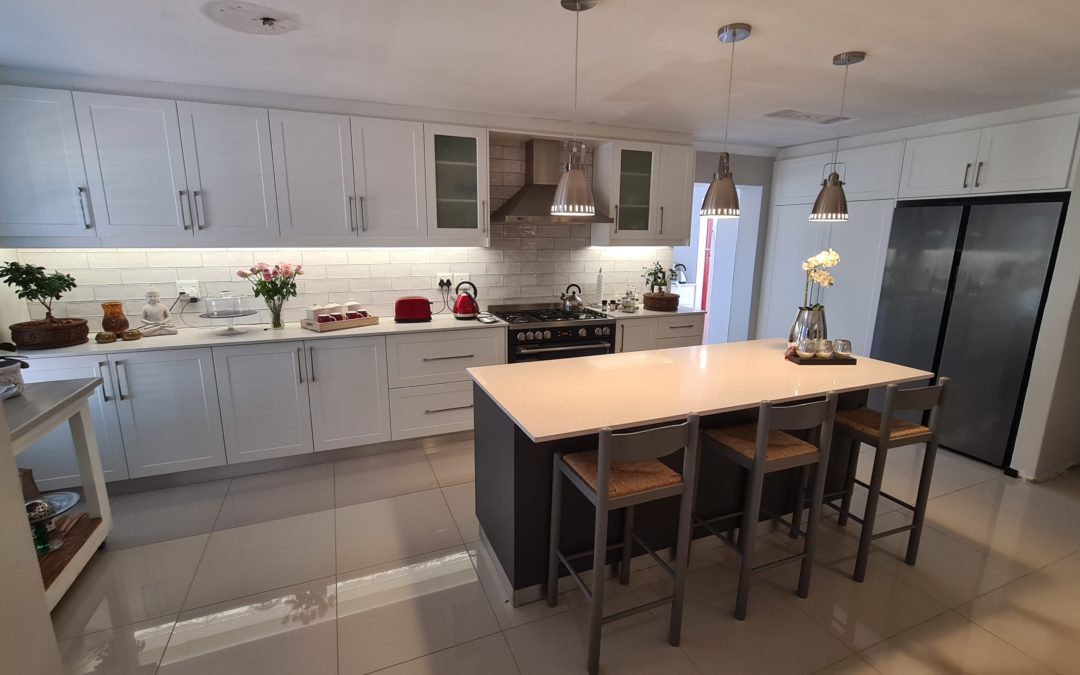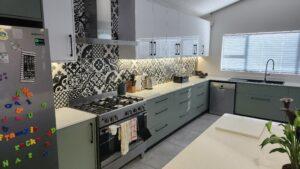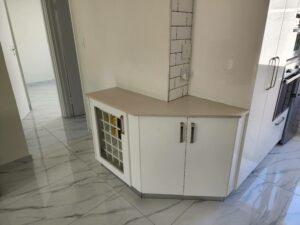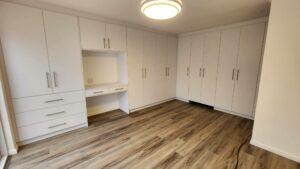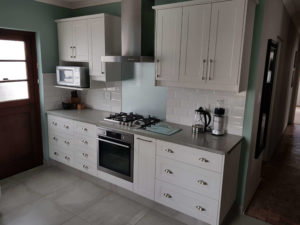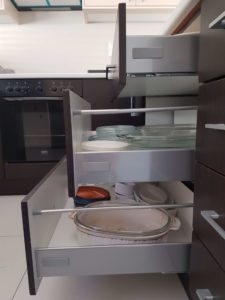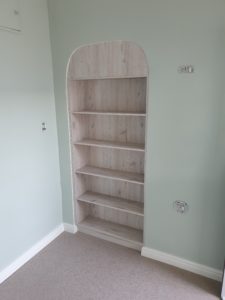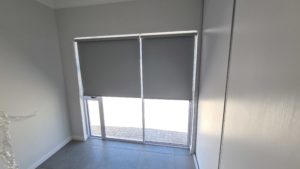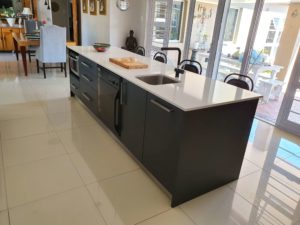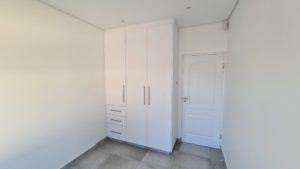As kitchen renovation contractors, we understand that embarking on a kitchen renovation project can seem overwhelming. However, we want to assure you that with proper planning and preparation, it can actually be an enjoyable and rewarding experience that enhances the value of your home. Having personally gone through the process ourselves, we know firsthand the importance of utilizing checklists to maintain organization and stay on track.
A kitchen renovation checklist serves as a comprehensive guide that outlines all the necessary tasks required for a successful kitchen renovation. It covers various aspects such as establishing budgets, selecting materials, and hiring contractors. By adhering to a well-structured checklist, you can rest assured that no vital steps will be overlooked and your project will progress smoothly within the designated timeframe and budget.
Whether you are considering a complete gut renovation or focusing on updating specific elements, a kitchen renovation checklist is an invaluable tool that should not be overlooked. In this article, we will share our own personal kitchen renovation checklists, along with valuable tips and tricks we have acquired throughout our experience. So grab a cup of coffee, and let’s embark on this exciting journey together!
Key Takeaways
As a kitchen renovation contractor, I’ve discovered some valuable advice that I believe will greatly benefit you:
- Set a realistic budget and stick to it: It’s crucial to establish a budget that aligns with your goals and financial capabilities. By monitoring your expenses closely, you can prevent your kitchen renovation costs from spiraling out of control.
- Carefully plan the layout of your kitchen: Take the time to consider the optimal arrangement of storage, cooking, and dining areas. Efficiently utilizing the available space will ensure that your kitchen is both functional and aesthetically pleasing.
- Invest in quality appliances and fixtures: While it may be tempting to cut costs on appliances and fixtures, investing in high-quality products will pay off in the long run. They tend to be more durable and reliable, reducing the need for frequent repairs or replacements.
- Pay attention to lighting: Adequate lighting is essential in the kitchen. Incorporate task lighting for cooking and food preparation, as well as ambient lighting for dining and entertaining. Well-planned lighting can enhance both functionality and ambiance.
- Choose durable and easy-to-maintain materials: Opt for materials like quartz or granite countertops that withstand daily use and are easy to clean. Similarly, consider ceramic or porcelain tile flooring, which is resilient and simple to maintain.
- Focus on the details: Don’t underestimate the impact of small details on the overall appeal of your kitchen. Cabinet hardware, backsplash tile, and window treatments can significantly enhance the look and feel of the space.
By incorporating these insights into your kitchen renovation checklist, you can effectively achieve your dream kitchen while staying within your allocated budget and timeline. Remember, careful planning and attention to detail are key to a successful and satisfying kitchen renovation.
Budgeting
As you plan your kitchen renovation, please know that one of the most important aspects to consider is your budget. You should ensure that you have enough funds to complete the project without breaking the bank. A budget is something that can certainly run away from you. Here are some key factors to keep in mind when it comes to budgeting:
Cost Breakdown
Before you start any renovation, you need to determine how much you can afford to spend. According to many Realtors, you should plan to spend between 6 and 10 percent of your home’s value on the kitchen renovation for the best return on investment. It is worth noting that it can be excessive in many cases. For example, if your home is worth R2,000,000, you should plan to spend between R120,000 and R200,000 on your kitchen renovation.
It’s important to break down the costs of the renovation into specific categories, such as cabinets, countertops, appliances, labour, and fixtures. Your kitchen contractor can provide you with a comprehensive breakdown of costs such as countertops, hardware, cabinets etc.
By breaking down the costs, you can see where your money is going and make adjustments as needed. You may decide to splurge on high-end slides and runners, along with hinges and cut back on the cost of a fancy backsplash, for example. The choice is yours at the end of the day.
Financing Options
If you don’t have enough cash on hand to pay for the renovation, there are several financing options available. One option is a home loan, which allows you to borrow against the equity of your home. Your bank may provide you with more information on this. Another option is a personal loan, which is typically unsecured and has a higher interest rate than a home loan.
Before taking out any loans, you should consider the interest rates and fees associated with each option. I would also make sure you can afford the monthly payments and that the loan won’t put you in a precarious financial situation.
Overall, budgeting is a crucial step in any kitchen renovation. By breaking down the costs and exploring financing options, you can ensure that my renovation stays on track and within my means.
Planning
When embarking on a kitchen renovation project, planning is key. It is important to take the time to consider all the different aspects of the renovation before diving in. In this section, we will discuss some of the key planning considerations to keep in mind.
Design considerations
The first step in planning your kitchen renovation is to consider the overall design of the space. This includes everything from the colour scheme to the style of cabinetry and countertops. When selecting a design, it is important to keep in mind the overall style of the home, as well as any specific needs or preferences.
One popular design trend is to create an open-plan concept kitchen that flows seamlessly into the rest of the home. This can be achieved by removing walls and creating a more open floor plan. Another trend is to incorporate natural materials, such as wood and stone (we love this look), into the design to create a warm and inviting space.
Layout options
The layout of the kitchen is another important consideration. There are several different layout options to choose from, including U-shaped, L-shaped, and galley kitchens. The layout should be based on the size and shape of the space, as well as the needs of the homeowner.
For example, a U-shaped kitchen is ideal for larger spaces and provides ample counter and storage space. A galley kitchen, on the other hand, is better suited for smaller spaces and provides a more efficient layout.
Appliance selection
Selecting the right appliances is also an important part of the planning process. When choosing appliances, it is important to consider both form and function. Appliances should not only look good, but also be practical and efficient.
For example, a double oven is a great option for those who love to cook and entertain, while a built-in refrigerator can help to save space and create a seamless look in the kitchen.
Overall, careful planning is key when it comes to a successful kitchen renovation. By considering design, layout, and appliance selection, homeowners can create a space that is both functional and beautiful.
Materials and Finishes
Cabinetry
When it comes to choosing cabinetry, there are a few things to consider. First, decide on the style you want. Do you prefer a modern, sleek look, or a more traditional feel? Once you have that figured out, you can start thinking about the material. Some popular options include wood, laminate, and metal. Each material has its own pros and cons, so do your research and choose what works best for you. Finally, think about the color and finish. Do you want a natural wood look, or a painted finish? The possibilities are endless, so take your time and choose something that you’ll love for years to come.
Countertops
Your countertops will likely be one of the most used surfaces in your kitchen, so it’s important to choose something that is both durable and beautiful. Popular options include granite, marble, quartz, and laminate. Each material has its own unique characteristics, so it’s important to choose something that fits your needs and style. Consider the color and pattern, as well as the maintenance required. Some materials may require more upkeep than others, so make sure you’re up for the task before making your final decision.
Flooring
Your kitchen flooring should be both durable and easy to clean. Popular options include tile, hardwood, and vinyl. Each material has its own pros and cons, so think about your lifestyle and choose something that will work for you. Consider the color and pattern, as well as the texture. Some materials may be more slippery than others, so keep that in mind if you have young children or elderly family members.
Backsplash
A backsplash is a great way to add some personality to your kitchen. It also serves a practical purpose by protecting your walls from spills and splatters. Popular options include tile, glass, and metal. Consider the color and pattern, as well as the style. Do you want something that blends in with your countertops, or something that makes a statement? The choice is yours, so have fun with it!
Contractors and Permits
Finding the Right Contractor
When it comes to kitchen renovation, finding the right contractor is crucial. You want someone who is experienced, reliable, and trustworthy. The best way to find a good contractor is through word of mouth. Ask friends, family, and neighbors if they have any recommendations. You can also check online reviews and ratings for contractors in your area. Once you have a few potential contractors, it’s important to do your due diligence. Check their licenses and certifications, and ask for references from past clients. Don’t be afraid to ask questions about their experience, work process, and pricing. A good contractor will be happy to answer any questions you have and provide you with a detailed estimate.
Obtaining Necessary Permits
Before starting any kitchen renovation project, it’s important to obtain the necessary permits from your local government. The specific permits required will depend on the scope of your project and your location. In general, major renovations such as electrical and plumbing work will require permits. If you’re working with a licensed contractor, they should be able to handle the permit process for you. However, if you’re doing the work yourself, you’ll need to contact your local building department to find out what permits you need and how to apply for them. Keep in mind that failing to obtain the necessary permits can result in fines and other legal issues. It’s always better to be safe than sorry when it comes to permits. Overall, finding the right contractor and obtaining necessary permits are two important steps in any kitchen renovation project. By doing your research and following the proper procedures, you can ensure that your renovation goes smoothly and meets all legal requirements.
Timeline and Logistics
When planning a kitchen renovation, it’s important to consider the timeline and logistics of the project. Here are some key factors to keep in mind:
Scheduling the Renovation
First, it’s important to schedule the renovation at a time that works for you and your family. Keep in mind that kitchen renovations typically take longer than expected, so it’s a good idea to plan for some extra time. Avoid scheduling the renovation around major holidays or special occasions to reduce stress in your household.
It’s also important to coordinate with your renovation team to ensure that everyone is on the same page. Make sure that you have a clear timeline for the project and that everyone knows what is expected of them.
Preparing for Construction
Before construction begins, there are several things that you can do to prepare. First, clear out your kitchen and remove any items that could be damaged during construction. This includes dishes, appliances, and other kitchen items.
You should also consider setting up a temporary kitchen in another part of your home. This will allow you to continue cooking and preparing meals while the renovation is underway.
Finally, make sure that you have all of the necessary permits and approvals in place before construction begins. This will help to ensure that the project runs smoothly and that there are no delays or unexpected surprises.
Conclusion
After going through this kitchen renovation checklist, I feel much more confident about tackling my upcoming project. By planning ahead and considering all the necessary steps, I know I can avoid any costly surprises and ensure that the project stays on track and on budget.
One of the most important takeaways from this checklist is to establish a clear budget and stick to it. By doing this, I can avoid overspending on unnecessary items and ensure that I have enough funds for the important aspects of the renovation.
Another key point is to carefully consider the layout and design of the kitchen. By taking the time to think about how I use the space and what features are most important to me, I can create a kitchen that is both functional and beautiful.
Overall, I am excited to begin my kitchen renovation and am grateful for this checklist for helping me stay organized and focused throughout the process. With the right planning and preparation, I know I can create the kitchen of my dreams.
FAQs
As I was researching and planning my own kitchen renovation, I came across some common questions that I had to find answers to. Here are a few of the most frequently asked questions:
Q: How much does a kitchen renovation cost?
A: The cost of a kitchen renovation can vary greatly depending on the size of your kitchen, the materials you choose, and the extent of the renovation. According to the National Kitchen and Bath Association, the average cost of a major kitchen remodel is around $68,000, while a minor remodel can cost around $22,000. However, it’s important to keep in mind that these are just averages and your actual cost could be higher or lower.
Q: How long does a kitchen renovation take?
A: Again, the timeline for a kitchen renovation can vary depending on the scope of the project. A minor renovation could take around 4-6 weeks, while a major renovation could take several months. It’s important to work with your contractor to establish a realistic timeline and to be prepared for unexpected delays.
Q: Do I need a permit for a kitchen renovation?
A: In most cases, yes. Depending on the extent of the renovation and your location, you may need permits for electrical, plumbing, and structural work. Your contractor should be able to help you determine what permits you need and can assist with the application process.
Q: Should I hire a designer for my kitchen renovation?
A: It’s not necessary to hire a designer, but it can be helpful. A designer can help you maximize your space, choose materials that fit your style and budget, and create a cohesive look throughout your kitchen. If you’re not sure where to start or feel overwhelmed by the process, a designer can be a valuable resource.

